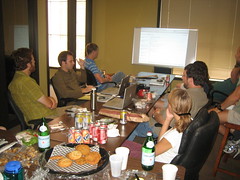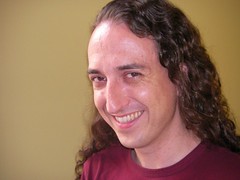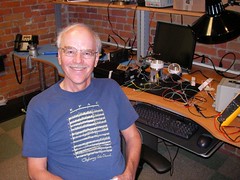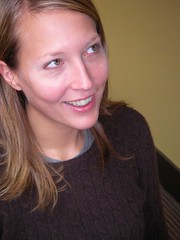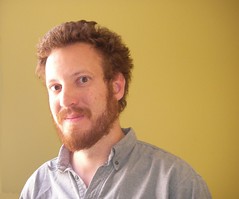Arrival: Mark Sanvitale
December 11th, 2006 by Team Member
by Lauren Summers
 Mark Sanvitale remembers vividly the Christmas he came downstairs to gifts splayed out near the fireplace in the living room. It appeared that Santa had dropped the presents when he tumbled from the chimney of Mark’s childhood home in Portland, Oregon. One of the boxes held a new Atari 400, and from that moment on, Mark knew exactly what he wanted to do when he grew up: work with computers.
Mark Sanvitale remembers vividly the Christmas he came downstairs to gifts splayed out near the fireplace in the living room. It appeared that Santa had dropped the presents when he tumbled from the chimney of Mark’s childhood home in Portland, Oregon. One of the boxes held a new Atari 400, and from that moment on, Mark knew exactly what he wanted to do when he grew up: work with computers.
When the time came for Mark to go to college, he hoped to enter the University of Washington’s Computer Science program, but at the time the program was too small to accept the large number of applicants. He wasn’t accepted, so instead of taking UW’s alternate mathematics route, he chose the University of Southern California.
After graduation, Mark regularly applied for positions at the same three companies: Apple, Pixar and LucasFilm’s Industrial Light & Magic. He would occasionally also stalk the Apple campus in hopes of meeting and making contacts, and his efforts paid off in August of 1999 when he was hired for testing, even though he wanted to be in development. So, he set a goal: “If I can’t get into development by the end of 2000, I’m looking for another job.” Three months before his deadline, Mark had landed the job he wanted as a developer on the Finder team, where he led the development of many cool features, including “smart folders” and the sidebar. He enjoyed working with the extremely smart and passionate people at Apple, and also acknowledged and appreciated co-workers who weren’t “Apple zealots” because they gave an added dimension to the company. Mark’s biggest peeve was with managers who made changes on a project at the very end, although he humbly admits it usually made the product better.
In 2005, Mark decided to leave the Bay area for Eugene, Oregon to take a break and lead a less expensive life. Many times in his life he has lived without a car, and he seems to like it that way. Mark proudly said that while taking time off he “did a lot of nothing, like hanging out and basketball, and I loved it.” He used some of his free time to travel around Ireland for a month and check out the beaches of Hawaii.
Mark found Exbiblio through Craigslist, which he usually uses to find apartments and to buy and sell furniture and household appliances. He was surprised by Exbiblio’s listing, impressed by the website, and applied for the Software Engineer position. He laughed when he recalled Claes-Fredrik Mannby’s phone call inviting him for an interview: “I realized too late that my outgoing message was one a friend had recorded as a joke. I tried to catch the call before the machine picked up, but I heard the machine scream, “MARKUS BARKUS,” so I quietly hung up and crawled back into bed.” Claes-Fredrik emailed Mark later that day and Exbiblio eventually offered him a job.
Between the time Mark accepted the job offer and his start date, Exbiblio went through the radical restructuring. When Ed Mahlum called with the news, Mark thought that Exbiblio was not in business anymore. Fortunately, the plan to rebound and continue the development of the scanner and its software included Mark’s expertise.

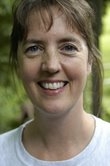 Exbiblio has recruited an evangelist for its oPen hand-held scanner due out next year. Her name is Brydie Ragan.
Exbiblio has recruited an evangelist for its oPen hand-held scanner due out next year. Her name is Brydie Ragan. 
